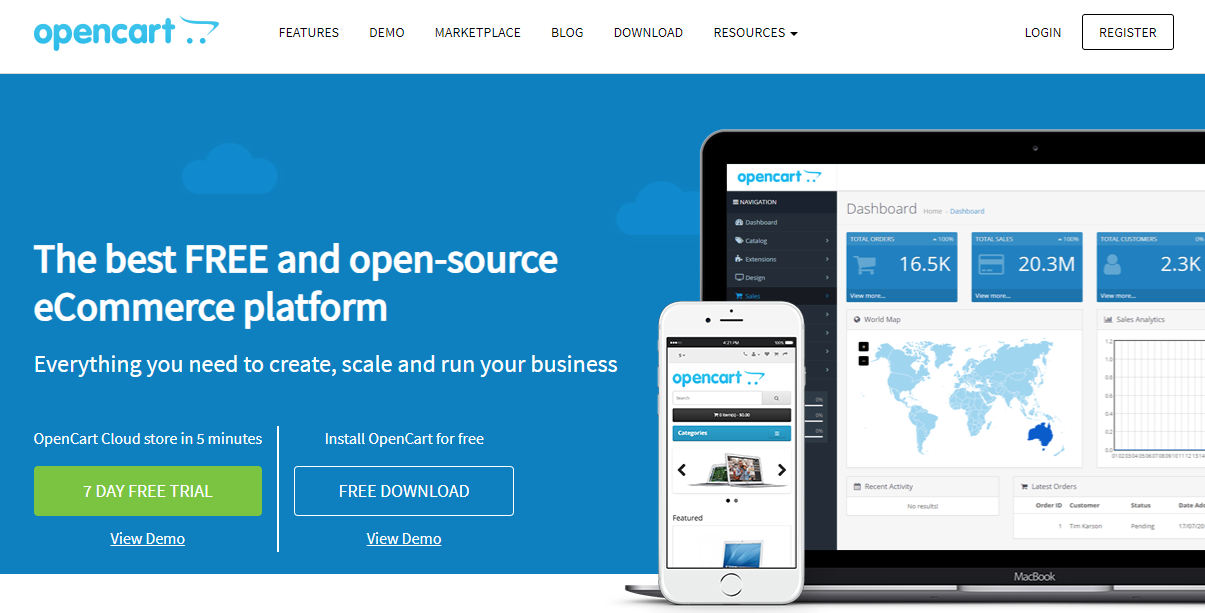Digital-marketing, Seo, Web-development, Business
Top E-Commerce Platforms for Startups
by Regina Manulid • July 6, 2023
E-commerce is a vital component to any company’s online presence today. In the digital age, this is a major driver for revenue growth, and in fact, sales from e-commerce are projected to reach an incredible $8 trillion by 2026. If you’re looking to get a slice of this action as the owner of a startup company, the array of e-commerce platforms can be overwhelming. Where does one start? What do we look out for? In this article, we will explore some of the most popular e-commerce platforms for startups as well as define some relevant key terms.
Understanding E-commerce and E-commerce Platforms
E-commerce, or electronic commerce, refers to the buying and selling of goods and services over the internet. It involves online transactions, including online shopping, electronic payments, and online auctions.
Subsequently, e-commerce platforms provide businesses with the necessary tools and features to create, manage, and optimize their online stores, making it easier for startups to establish and grow their digital presence.

Hosted vs Self-host****ed E-commerce Platforms
E-commerce platforms can be classified as either hosted or self-hosted. Hosted e-commerce platforms provide the tools and framework necessary to run an online store. In contrast, self-hosted platforms offer more control and are ideal for businesses on a shoestring budget and have the technical know-how:
Hosted E-commerce Platform
-
- Faster set-up. Getting started will be easier on a hosted platform, as all a customer needs to do would be to personalize their shop on the host’s existing framework.
- Customer service. Hosted e-commerce platforms offer premium support for quickly troubleshooting any issues you may encounter.
- More expensive. Because the hosted model takes care of the back-end grunt work, you’re paying extra for convenience. You will also have to spend more as your store grows and requires more powerful features.
- Faster set-up. Getting started will be easier on a hosted platform, as all a customer needs to do would be to personalize their shop on the host’s existing framework.
Self-hosted E-commerce Platform
-
- Less expensive. Even with additional costs for the domain name, SSL certificate, and hosting fees, self-hosted platforms are generally less expensive than a hosted platform.
- Full control. Self-hosted e-commerce platforms provide more options for customization than hosted solutions. On the flipside, this could be a disadvantage for those with limited technical knowledge.
- Takes a lot of work. Keeping a self-hosted online store running smoothly can be time-consuming and difficult. This is because it’s entirely up to you to stay on top of hosting, security, and software updates.
- Less expensive. Even with additional costs for the domain name, SSL certificate, and hosting fees, self-hosted platforms are generally less expensive than a hosted platform.
Now that we’ve covered some key terms, let’s dive into some of the world’s top e-commerce platforms. The following are listed in no particular order:
1. Shopify

Known for its user-friendly interface and extensive customization options, Shopify is one of the leading e-commerce platforms. On the platform, startups can easily create professional-looking online stores with little to no coding knowledge. Shopify offers several pricing plans, including Basic Shopify ($19/month), Shopify ($49/month), and finally, Advanced Shopify ($299/month).
Pros:
-
-
- Beginner-friendly
- Drag-and-drop functionality
- Extensive app store for adding additional features and integrations.
- Beginner-friendly
-
Cons:
-
-
- Extra cost for premium themes and some essential apps
- Additional transaction fees on each sale for third-party payment gateways
- Advanced customization requires knowledge of Liquid templating language.
- Extra cost for premium themes and some essential apps
-
2. WooCommerce
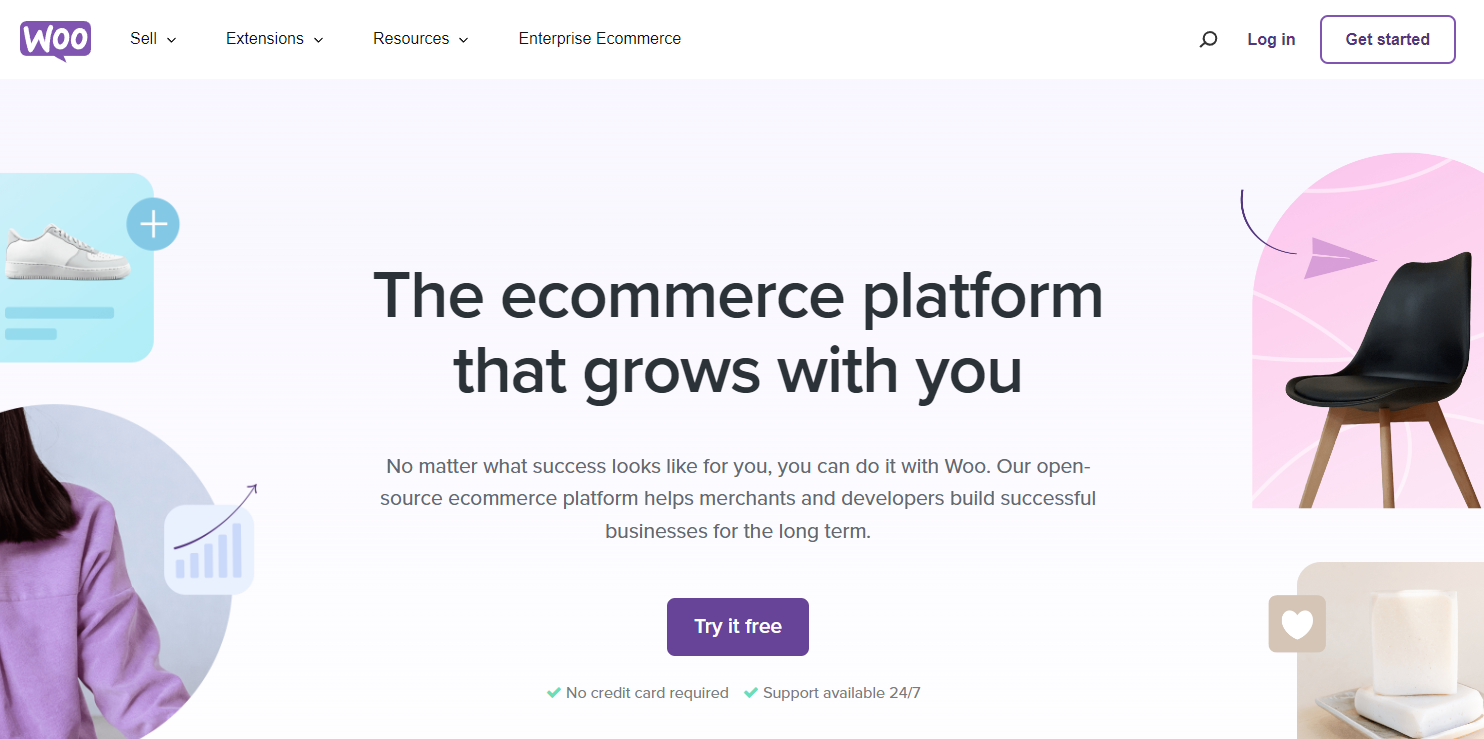
A popular e-commerce plugin for WordPress, WooCommerce is an excellent choice for startups that are already using WordPress for their website. WooCommerce itself is free to use, but additional expenses to make the free WooCommerce plugin functional will include hosting fees, domain registration, premium themes, and extensions. The basic features cost around $10, while bigger WooCommerce websites can cost over $1,000 annually.
Pros:
-
-
- Seamless integration with WordPress, providing full control over your website and content
- A wide range of themes and plugins available for customization
- Built-in blogging features for content marketing
- No transaction fees, as it is self-hosted
- Seamless integration with WordPress, providing full control over your website and content
-
Cons:
-
-
- Requires technical knowledge to set up and manage
- Additional costs for hosting, domain registration, premium themes, and extensions
- May need to rely on third-party plugins for advanced functionality.
- Requires technical knowledge to set up and manage
-
3. BigCommerce
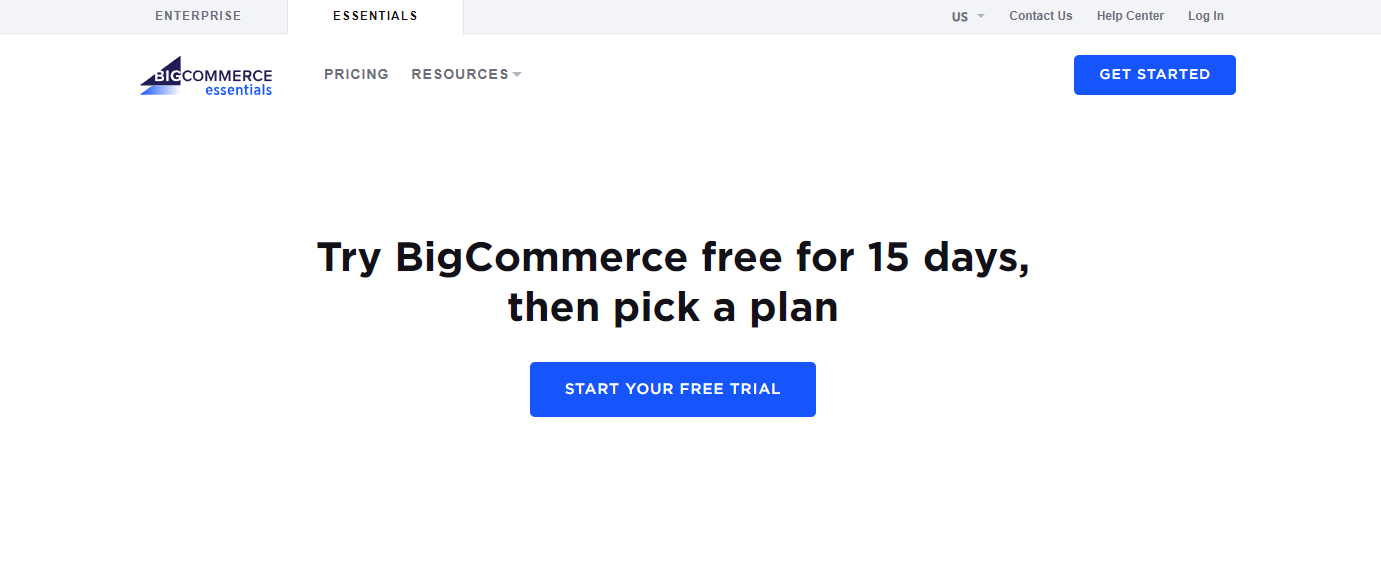
Another robust e-commerce platform that offers a whole set of features suitable for startups is BigCommerce. It offers different pricing tiers, including Standard ($29.95/month), Plus ($79.95/month), Pro ($299.95/month), and Enterprise (custom pricing) to cater to different business sizes. In addition, there is a free 15-day trial.
Pros:
-
-
- Powerful built-in SEO and marketing tools for better visibility and customer engagement.
- Mobile-optimized and responsive design templates for a seamless shopping experience.
- No transaction fees on any plans.
- Excellent security features to protect customer data.
- Powerful built-in SEO and marketing tools for better visibility and customer engagement.
-
Cons:
-
-
- Some functions are dependent on additional plugins.
- Advanced customization may require technical expertise.
- Pricing plans are higher compared to some competitors.
- Some functions are dependent on additional plugins.
-
4. Squarespace
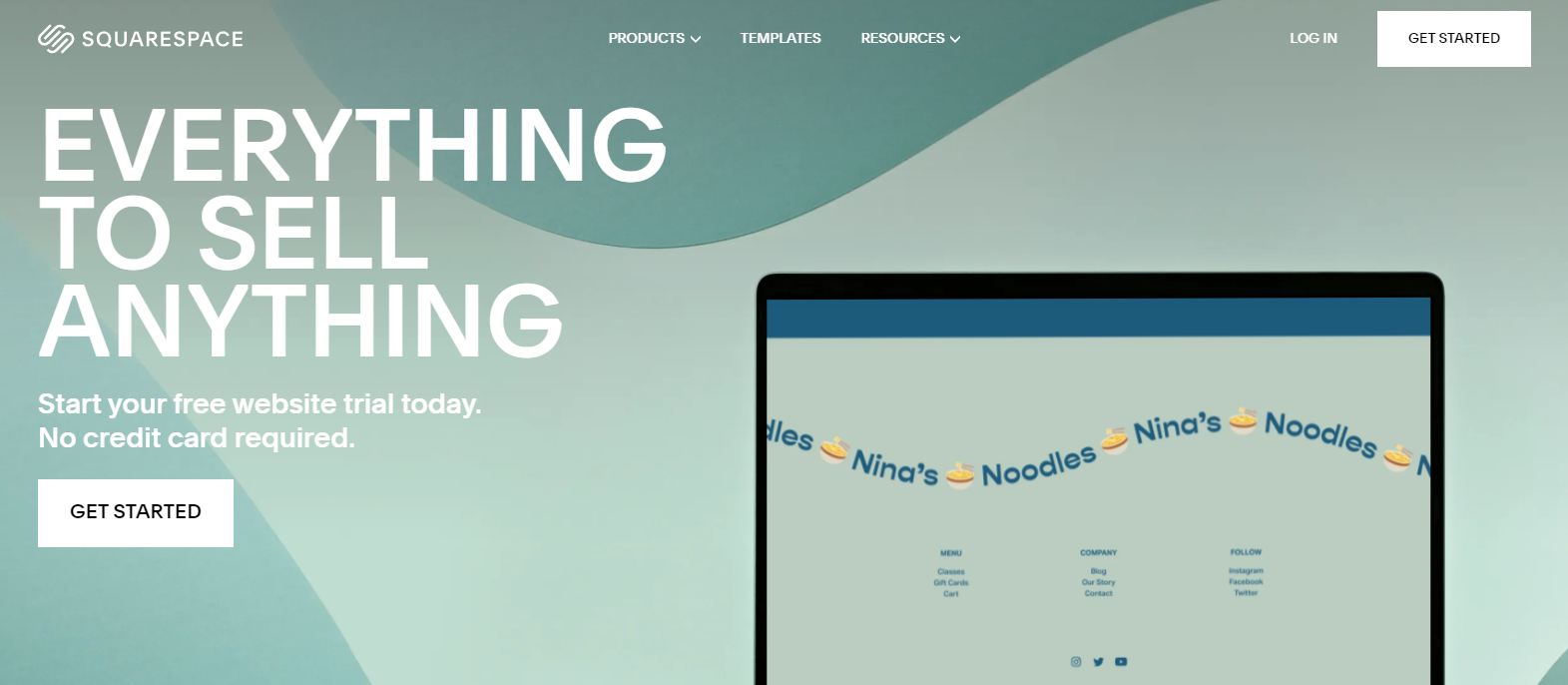
For small to medium businesses, Squarespace is a no-frills platform that produces beautiful websites. This is a favorite among creatives looking to build a website that showcases their work. The Basic Plan starts at $26 per month, whereas the Advanced Plan’s monthly rate is $40. Customers can also try the platform for free for 14 days.
Pros:
-
-
- Beautifully designed templates
- No cap to the number of items you can sell
- Full customer support with live chat, 24/7 email support, and a help library
- Beautifully designed templates
-
Cons:
-
-
- Slow load times
- Limited payment options
- Features are not as advanced as some other platforms.
- Slow load times
-
5. Wix
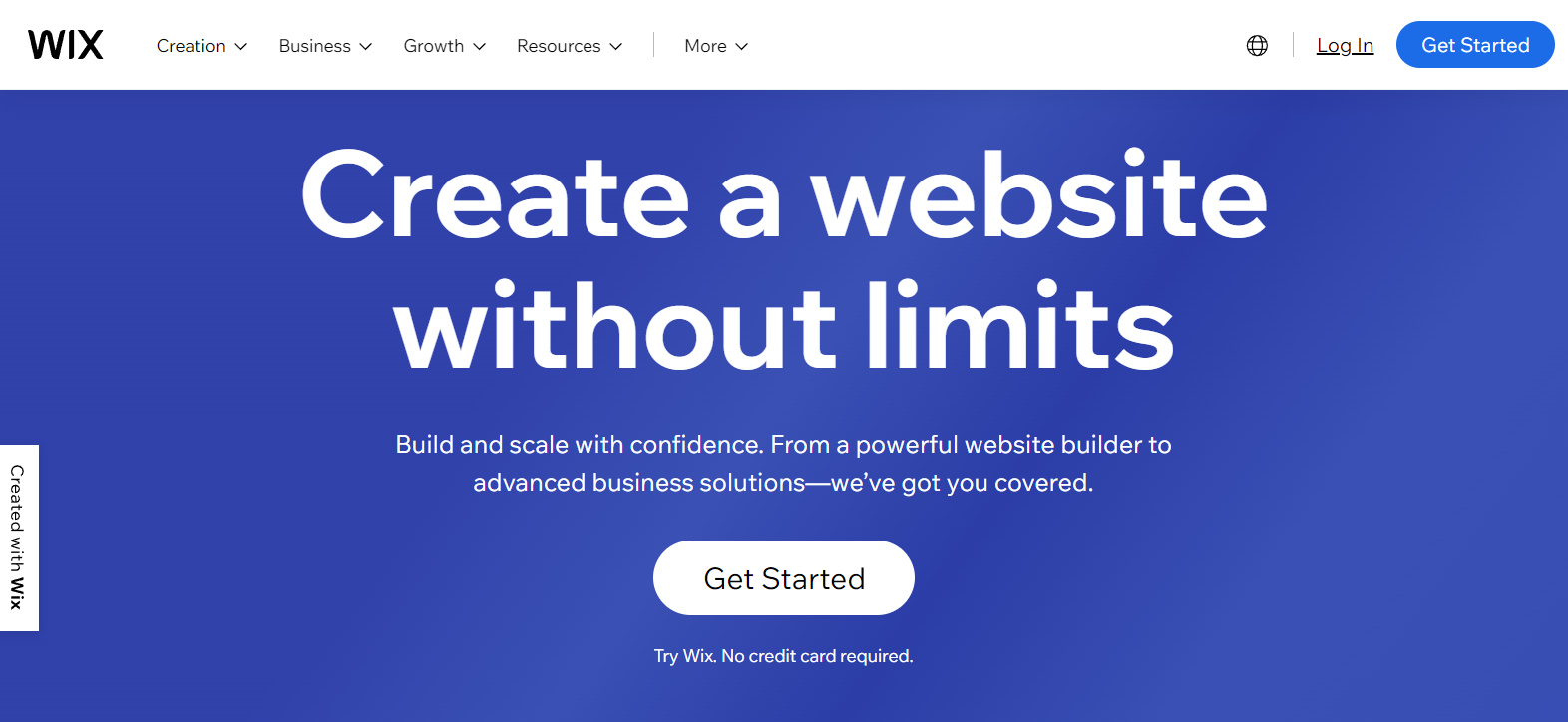
Wix is a popular website builder that offers an e-commerce platform. Covering all the basic e-commerce integrations, Wix is ideal for small businesses. The Business Basic plan starts at $23 per month, while the Business VIP plan costs $49 per month.
Pros:
-
-
- Beginner-friendly interface
- Wide range of templates
- Free plan available
- Beginner-friendly interface
-
Cons:
-
-
- Template can’t be changed once a site goes live
- Forced Wix branding on free plan
- Not suitable for bigger online stores
- Template can’t be changed once a site goes live
-
6. Magento
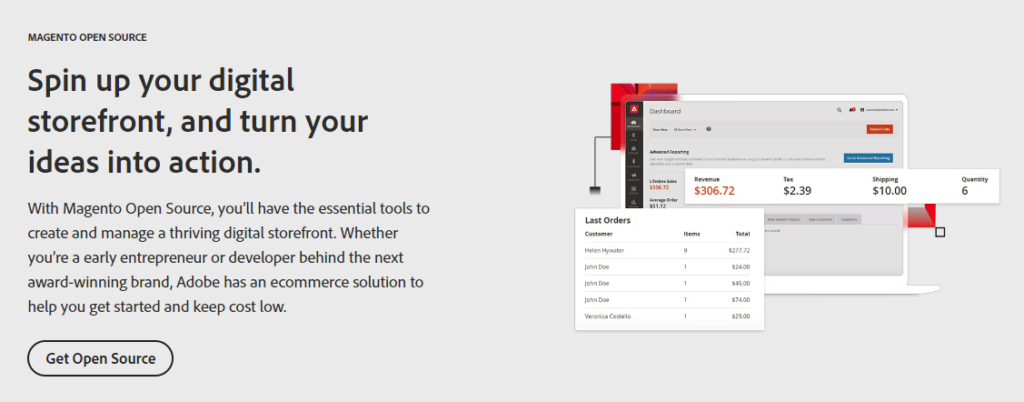
Magento is a platform that was acquired by Adobe in 2018. There are three tiers, the most basic of which is Magento Open Source. With basic features, this is popular among small to medium businesses and is free. The priced plans start at $2,000 per month and can go up to $5,000 for the most premium plans.
Pros:
-
-
- Extensive out-of-the-box features and advanced SEO
- High scalability on a global platform
- Large community support
- Extensive out-of-the-box features and advanced SEO
-
Cons:
-
-
- Learning curve can be steep for beginners
- Pricing is higher than other platforms
- Can be “bloated”, leading to slower page load times
- Learning curve can be steep for beginners
-
7. OpenCart
Free to download and use, OpenCart is an open-source e-commerce platform that offers extensive options to customize your online store. However, you will need to pay for web hosting, a domain name, and an SSL certificate.
Pros:
-
-
- Free to use
- Highly customizable and easy-to-use user interface
- A range of features, including support for unlimited categories and products, multiple currencies and languages, shipping, payments, and mobile access
- Free to use
-
Cons:
-
-
- Separate costs for web hosting, domain name, and SSL certificate
- Extra fee for technical support ($99 per month)
- Developer skills required
- Separate costs for web hosting, domain name, and SSL certificate
-
More Tips on E-commerce Platforms
There are many options out there, and your choice will boil down to factors that matter the most to you. If you’re still not sure what those are exactly, here are some helpful questions to ask yourself:
- How much money and time are you willing to put into setting up your online store? A low-budget solution might sound appealing, but it’s not for tech novices. On the other hand, a premium plan on a fully integrated platform might be excessive for a startup business.
- Are your coding skills up to par? If the answer isn’t a definite yes, err on the side of caution and use a beginner-friendly e-commerce platform. Alternatively, you can hire a third party to consult and have everything set up for you.
- Thinking long-term, how far do you want to take your business? If you want to expand, it might be good to pick out an e-commerce platform that accommodates easy scaling.
Each platform mentioned above has its own set of pros and cons but, ultimately, the “right” one depends on the specific needs and resources of your startup. Choosing an e-commerce platform that suits your needs makes all the difference to build an impactful website, strengthen online presence, and spur business growth.
Remember that selecting the right e-commerce platform is just the first step. In addition, regular monitoring, optimization, and continuous improvement are essential to thrive in the competitive online marketplace.
When in Doubt About E-Commerce Platforms, Ask for Help
Finally, if you need help navigating through the complexities of e-commerce platforms, reach out to us! RipeConcepts delivers sleek professional work for a fraction of the cost. We have proven experience providing custom e-commerce solutions to clients in various industries. Get in touch with us at rc.connect@nagarro.com.

Business, Digital-marketing, E-commerce, Web-development

